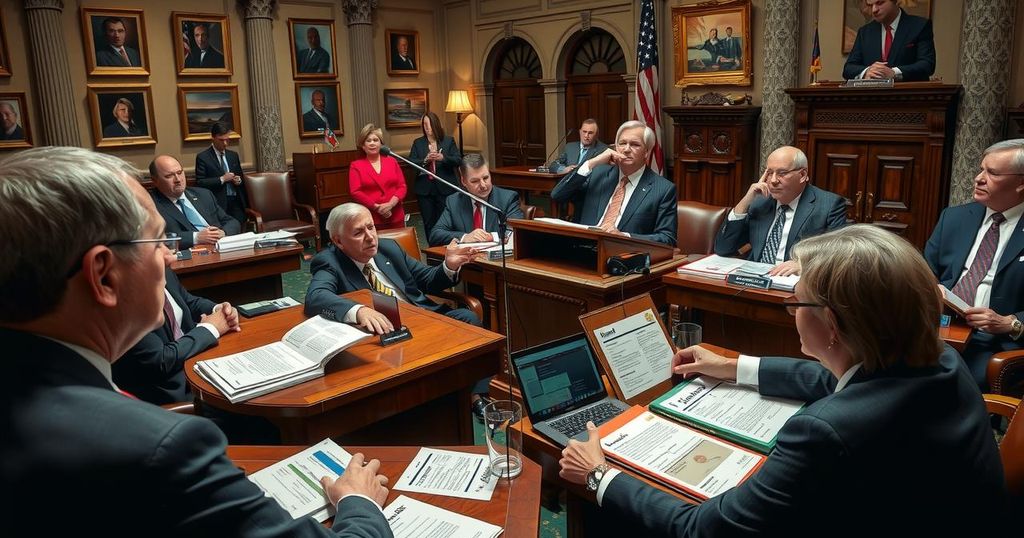Four years after the January 6 insurrection, 157 members of Congress remain election deniers, highlighting the trivialization of this label in U.S. politics. While similar incidents in other democracies resulted in significant actions against political leaders, U.S. responses, particularly towards Trump and his allies, have been minimal. This underscores a concerning acceptance of election denialism within the political framework, leading to diminished accountability for those undermining democratic institutions.
Four years following the insurrection of January 6, 2021, a significant number of members within the United States Congress continue to deny the legitimacy of the 2020 election results. Specifically, 157 members from the new 119th Congress have been classified as election deniers, a slight decrease from the 172 who held such views previously. Notably, this comprises over 38% of the Senate Republican caucus and more than 62% of the House GOP caucus, including prominent figures such as Senators Ted Cruz and Rick Scott, alongside the entirety of the Republican House leadership. In addition to Congress, election denial remains prevalent among state-level officials, with 10 out of 27 Republican governors, 9 out of 28 Republican attorneys general, and 4 out of 26 GOP secretaries of state identified as election deniers.
The political implications of this situation starkly contrast with responses observed in other democracies, such as South Korea and Brazil, where determined actions were taken against leaders following undemocratic attempts to disrupt governance. In South Korea, President Yoon Suk Yeol faced immediate backlash from his party and opposition, resulting in his impeachment for enforcing martial law. Similarly, Brazil witnessed decisive action against Jair Bolsonaro and his affiliates after they incited riots similar to those seen in the U.S.
In the United States, however, attempts to hold accountable those responsible for the January 6 riots, including then-President Trump, have progressed at an exceedingly slow pace. Attorney General Merrick Garland’s investigations have been characterized by a bottom-up approach, focusing first on individual rioters instead of policymakers who instigated the events. This reluctance to confront political figures within Trump’s orbit delayed accountability and may have contributed to the normalization of election denialism within political culture in the U.S. Over 900 individuals connected to the riots have been prosecuted, yet Trump has signaled his intention to pardon them if re-elected, further complicating the accountability landscape.
Ultimately, the continued presence of 157 election deniers in Congress illustrates how the political framework has adapted to and accepted these ideologies without significant repercussions. The methodologies employed by the Justice Department have arguably perpetuated an environment where political accountability is lacking, contributing to the permeation of election denial into the core of American politics.
The events of January 6, 2021, when supporters of President Donald Trump stormed the Capitol to contest the certification of Joe Biden’s presidency, marked a critical moment in American history. In the aftermath, a considerable faction within the Republican Party continues to propagate false claims regarding the election’s integrity. This landscape prompts a discussion about the accountability of elected officials and the broader implications for democracy in the United States. Noteworthy is the comparison with global responses to similar threats to democratic principles, notably in South Korea and Brazil, suggesting varied approaches to political crises.
The persistence of 157 election deniers in Congress, four years after a significant attack on democratic processes, highlights a substantial shift in the political landscape within the United States. The lack of serious repercussions for those who undermine electoral integrity reflects not only a failure of accountability but also an alarming normalization of such behavior in political discourse. The stark contrast with international responses to democratic threats emphasizes an urgent need for a more proactive and decisive approach to uphold democratic values and principles in America.
Original Source: zeteo.com






